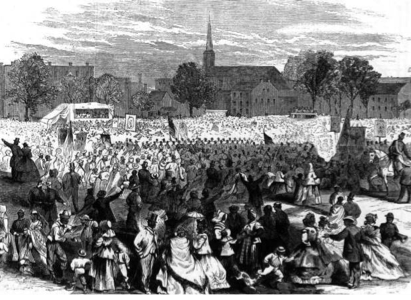Sign up for FlowVella
Sign up with FacebookAlready have an account? Sign in now
By registering you are agreeing to our
Terms of Service
Loading Flow


Abolition/Emancipation Reform

As one black pastor from New York angrily proclaimed, "We are natives of this country. We only ask that we be treated as well as foreigners."
African Americans increasingly were joined by whites in public criticism of slavery. There was support of white people for the abolition of slavery. Abolition was the call to outlaw slavery. Most of the white support was from preachers like Charles G. Finney who said slavery was "a great national sin". How ever as time went on more people joined the reform. These people were called abolitionists. They continued to campaign for emancipation. Nevertheless, as abolitionists' efforts intensified during the 1850s some turned to violence. This turmoil over slavery would lead to a divided nation.
